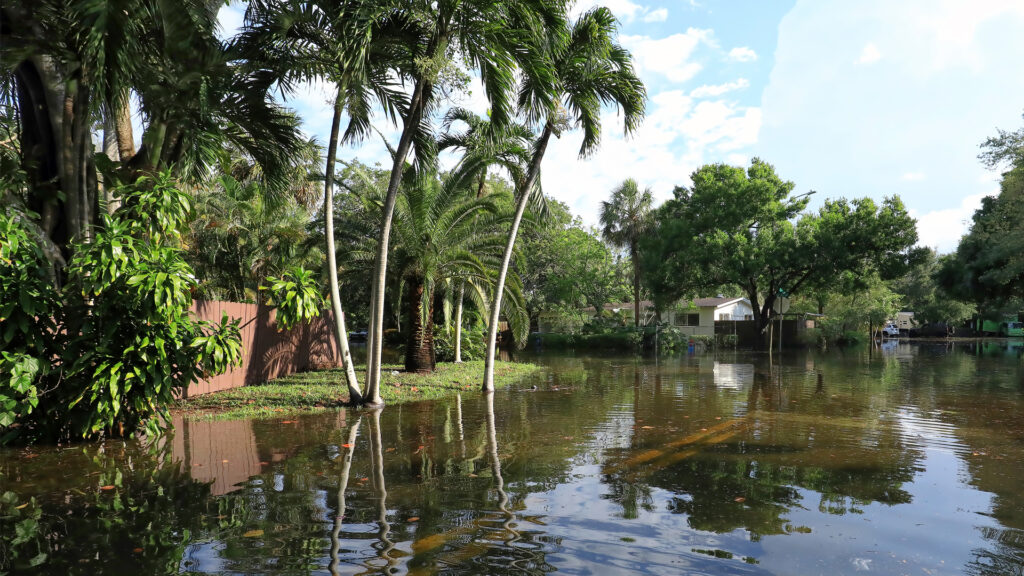A roundup of news items related to climate change and other environmental issues in Florida:
Drought vs deluge: Florida’s unusual rainfall totals either too little or too much on each coast | Associated Press
In Florida, this year has been a tale of two states as far as rainfall totals, with the southeast coast deluged by sometimes-record rainfall and much of the Gulf of Mexico coast facing a drought.

Counties up and down Florida’s west side are under new water use restrictions, especially in one area where the water table has gotten so low that wells could dry up. Now Florida’s wettest season is over until late spring.
What’s happening in Florida could soon become a reality elsewhere, as farmers and residents increasingly have to deal with changes in weather patterns because of climate change. This means hotter temperatures in summer, more powerful hurricanes and other heavier rainstorms and droughts during unexpected seasons.
Alternative fuels power House committee presentations on Florida’s energy future | Florida Politics
Alternative fuels provide an opportunity to become more energy independent while also diverting waste streams.
The House Energy, Communications, and Cybersecurity Subcommittee heard presentations from stakeholders on the diversification of energy in the Sunshine State, a conversation that was dominated by discussion about alternative fuels such as renewable natural gas and liquefied natural gas (LNG).
“Diversification of Florida’s fuel supply is a vital measure in advancing the reliability and sustainability of energy for Floridians,” Florida Natural Gas Association Executive Director Dale Calhoun said. “I am encouraged by bipartisan support for the continued development of reliable and affordable energy sources for Florida families and businesses.”
How scientists are tracking mosquitoes that could be carrying deadly diseases | ABC News
Tracking one of the deadliest living beings on Earth will be the key to saving thousands of lives each year, researchers at the University of South Florida say.
The pesky bite of a mosquito has the potential to bring more than just itchiness and inflammation. More than 1 million people worldwide die from mosquito-borne diseases every year, according to the American Mosquito Control Association.
As global temperatures warm, the risk of contracting a mosquito-borne illness becomes more prevalent, simply because a hotter climate creates optimal breeding conditions for the insect.
If you have any news items of note that you think we should include in our next roundup, please email The Invading Sea Editor Nathan Crabbe at ncrabbe@fau.edu. Sign up for The Invading Sea newsletter by visiting here.



